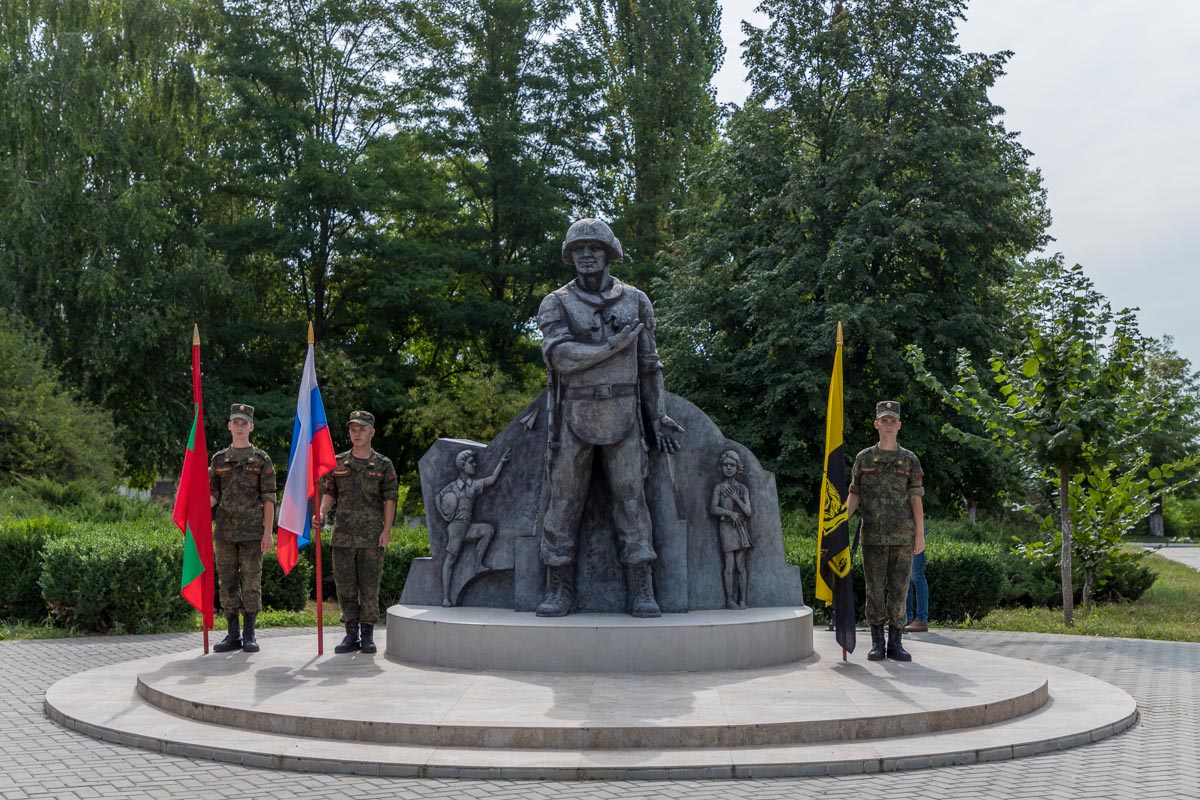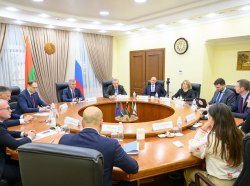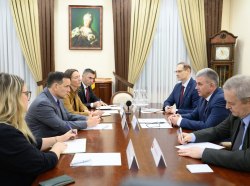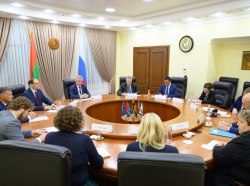Tiraspol, December 27. /Novosti Pridnestrovia/. The peacekeeping operation in Pridnestrovie is unique and should be included in all peacekeeping textbooks. This opinion was expressed by the Ambassador-at-Large of the Russian Ministry of Foreign Affairs, Sergei Gubarev in an interview with TASS.
“If we look at the hotbeds of regional conflicts in Eastern Europe, the uniqueness of the operation is that Pridnestrovie is the only place where military actions have not resumed after the introduction of the peacekeeping forces,” the Russian diplomat said.
“From 1992 to the present, no peacekeeper has been killed or injured,” said Gubarev.
He recalled that military units of the parties involved in the armed conflict of Moldova and Pridnestrovie take part in the peacekeeping operation.
“Representatives of Moldova, Pridnestrovie and Russia serve at a number of joint peacekeeping posts, and they do it perfectly,” Gubarev noted.
Meanwhile, the authorities of the Republic of Moldova have repeatedly stated the need to transform the peacekeeping operation into a civil-police mission. However, the Russian diplomat called this approach irresponsible.
“As for its termination or some transformation, according to the situation in the region, it is simply irresponsible to talk about this issue,” he said.
Gubarev reminded that the Operational Group of Russian Troops in Pridnestrovie solves two tasks. The first one is protection of warehouses of old Soviet ammunition in Kolbasna, another one is participation in the peacekeeping operation.
In addition, according to Gubarev, the decision on certain changes in the peacekeeping format can be taken only by those who launched this operation – Russia, Moldova, Pridnestrovie and joined them later Ukraine.
“The agreement 1992 on launching this operation was signed at the level of states heads, any changes should be discussed at the same level,” the Ambassador-at-Large of the Ministry of Foreign Affairs of the Russian Federation said.
At the same time, the natural end of the peacekeeping operation, as Gubarev said, will be the achievement of a long-term viable political settlement of the Moldova-Pridnestrovian conflict, which will be approved by the population of both the left and right banks of the Dniester.
The process of peaceful settlement of the Moldova-Pridnestrovian conflict was launched on 21 July 1992. The respective agreements were signed by the Presidents of Russia and Moldova in the presence of the President of Pridnestrovie. A Joint Control Commission (JCC) was established to disengage the conflicting parties. It initially included representatives of the Russian Federation, the Republic of Moldova and the PMR.
The JCC has set the buffer zone limits (Safety Zones). The functions for the peacekeeping operation in the region were given to the Joint Peacekeeping Forces from among the Russian, Moldovan and Pridnestrovian soldiers. Peacekeepers of the Russian Federation arrived in the Security Zone on July 29, 1992. In 1998, Ukraine joined the peacekeeping operation through the Institute of Military Observers, as well as the representatives of the OSCE mission.








